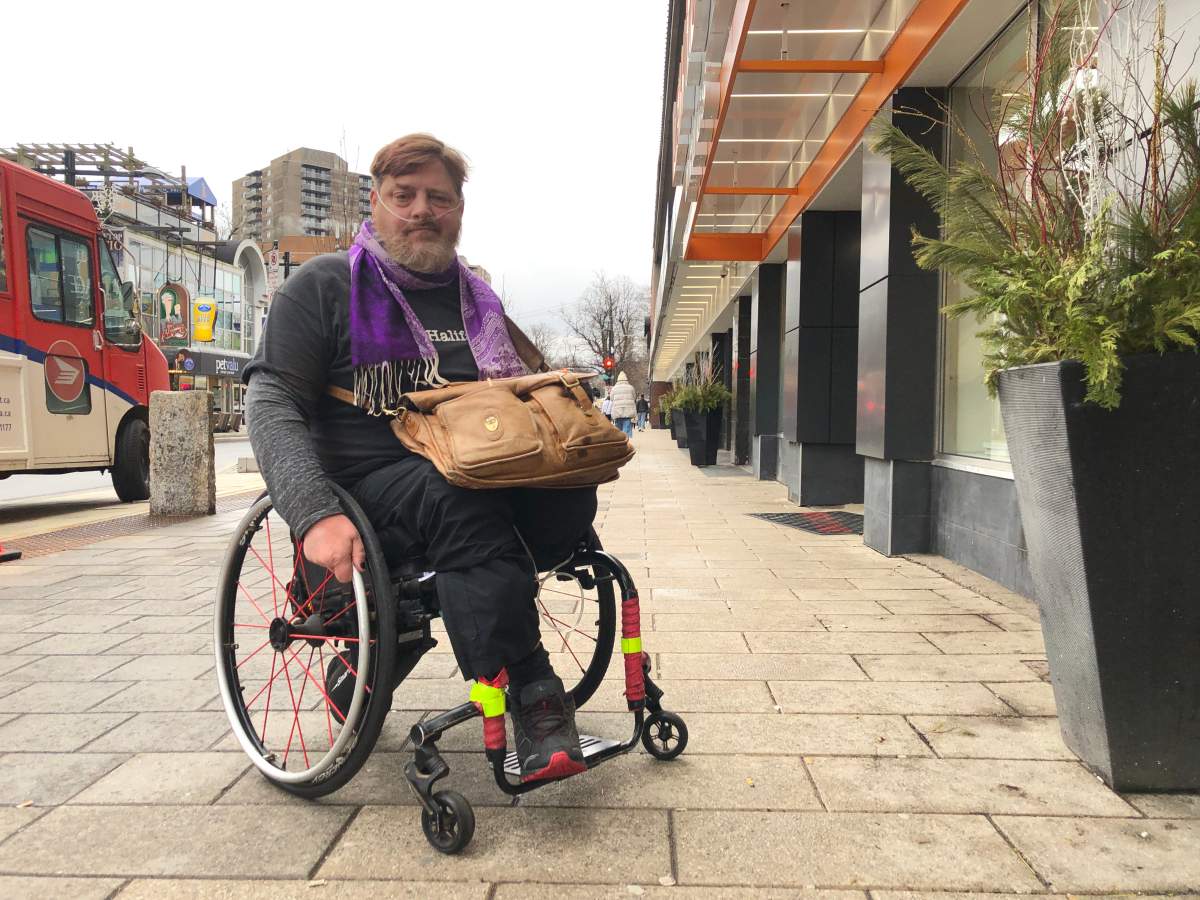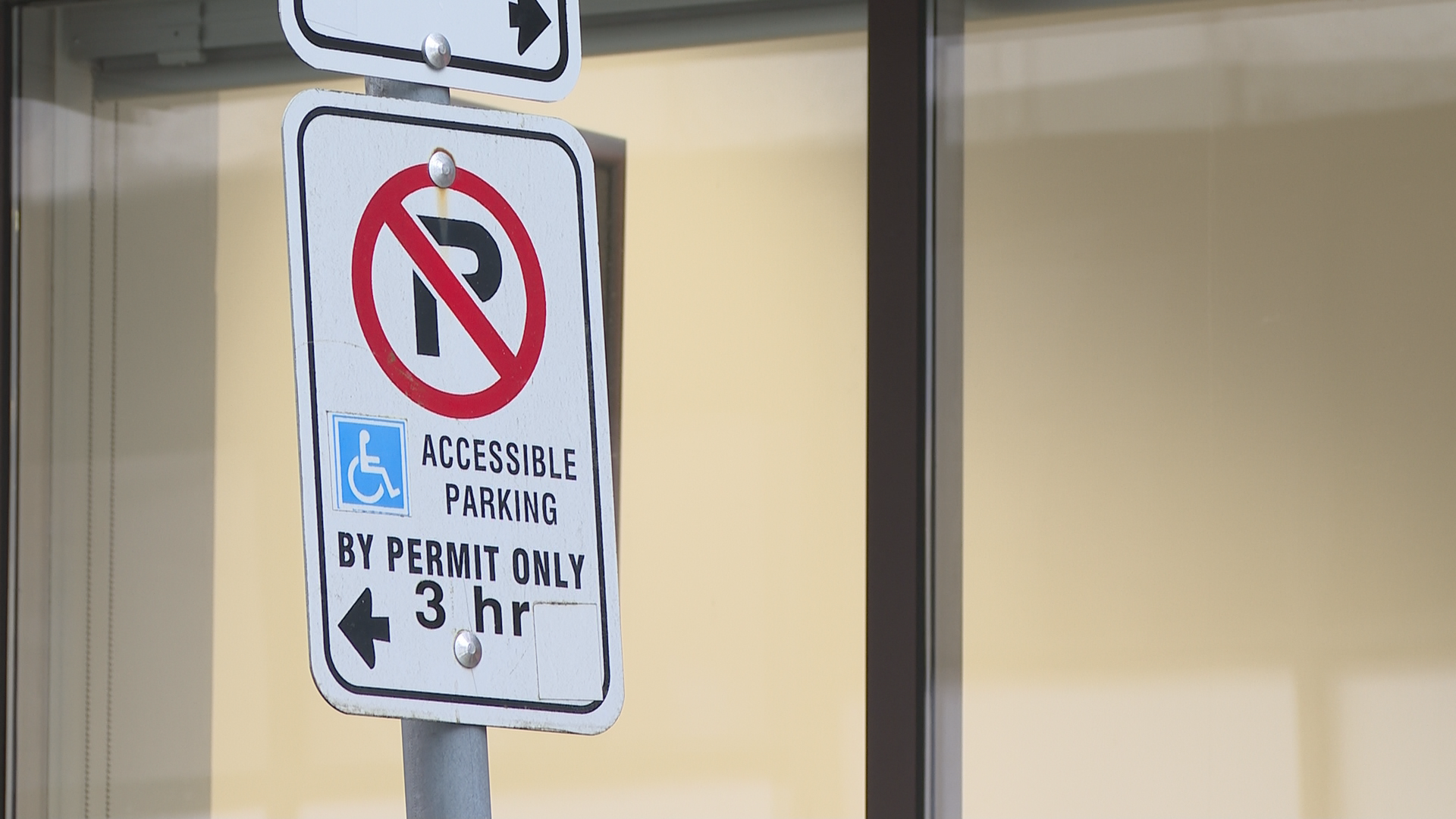A Halifax disability rights advocate wants drivers who abuse accessible parking spaces to face steeper fines and for the signs showing they’re reserved to be more clear.

Paul Vienneau says accessible parking in his neighbourhood around Spring Garden Road is already limited. But now he often sees delivery drivers pulling into them to carry out their orders.
He explains just stopping in an accessible parking spot for a few minutes can have a big impact on the people who rely on them.
“You know, nobody is going to immediately die from not being able to do this, but what will happen — it’s happened to me — they’ll give up trying to do these things and it leads to staying home and not taking part in your own life,” Vienneau says.
He wants to see the $100 fine double.

Get breaking National news
“In some cities in America, it’s $700. I think if we doubled it to $200, this would make it a little more of a discouragement and people would go ‘maybe I shouldn’t do that’,” he says.
Parking Services Director Victoria Horne says the city shares his frustration and would also like to see the fines increase.
“We continue to work with the province on that, but there hasn’t been a movement as of yet,” she says. “Instead, staff are looking at existing legislation — within the summary offence fine category — to see if there are existing options to make that penalty greater.”
She adds that in the last year, accessible parking tickets in the city have increased by 52 per cent.
In a statement, the Nova Scotia Department of Public Works says it’s an important issue and they’re looking at what they can do to address it.
“We want to ensure that our roads are safe and accessible and that our Traffic Safety Act serves the needs of all Nova Scotians,” the statement says. “We can commit to examining fine levels related to illegal parking in accessible parking spaces.”
Vienneau adds it’s not just about the fine. Another issue he points to is the signage in the city for accessible parking. He says the symbol showing spaces are reserved is too tiny on signposts.
“Maybe it’s like reflective blue, accessible blue, with the wheelchair symbol guy larger, much larger,” he suggests.
He also wants to see an education campaign launch for Nova Scotians to ensure they know the signs and their meaning when cruising through the city.
- Tumbler Ridge B.C. mass shooting: What we know about the victims
- There are changes coming to Tim Hortons menus and stores soon
- RCMP respond to reports of guns at schools in several Alberta communities
- ‘We now have to figure out how to live life without her’: Mother of Tumbler Ridge shooting victim speaks










Comments
Want to discuss? Please read our Commenting Policy first.